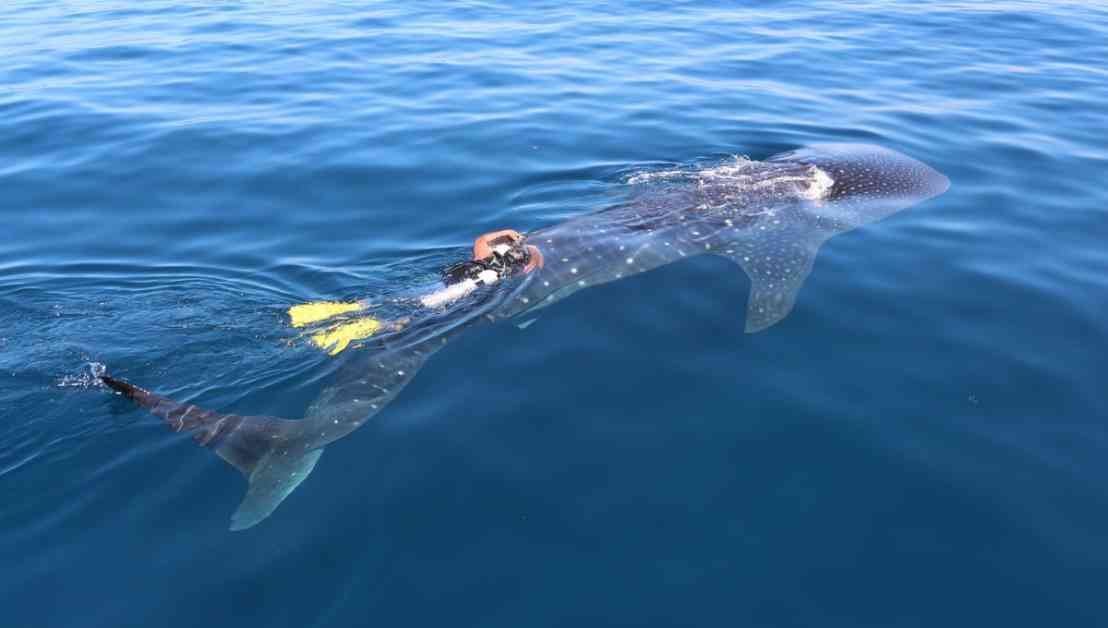Whale sharks are the largest fish in the ocean, and one particular whale shark named Rio Lady has been making waves with her incredible long-distance journeys in the Gulf of Mexico. Researchers have been tracking Rio Lady’s movements for almost two decades, providing valuable insights into the behavior and habits of these majestic creatures.
Despite their massive size, there is still much that we don’t know about whale sharks. For example, their mating and social behaviors remain a mystery. However, one thing we do know is that every year between July and August, a large gathering of whale sharks takes place off the coast of Isla Mujeres in the Gulf of Mexico. Up to 400 whale sharks come together to feast on freshly spawned tunny fish eggs, a true banquet for these filter feeders.
Rio Lady was last tracked near Isla Mujeres in 2018, where researchers were able to follow her movements over the next four years. During this time, she covered an impressive 44,000 kilometers in the Gulf of Mexico, revealing that she frequents three different hunting areas in the region. Interestingly, the feeding ground gatherings seem to be age and sex-specific, with young males predominantly visiting Isla Mujeres.
While Rio Lady’s movements during the winter months were not recorded in the current study, previous data shows that she once swam over 7,000 kilometers to the mid-Atlantic near Brazil, possibly to give birth. Such long-distance journeys highlight the importance of protecting whale shark habitats and implementing conservation efforts to ensure their survival.
The global whale shark population has been declining, with factors like fishing, boat strikes, and microplastic ingestion contributing to their endangerment. Conservation efforts, such as establishing nature reserves and regulating tourism activities near whale shark habitats, are crucial for their protection. By understanding the movements and behaviors of whale sharks like Rio Lady, researchers can provide valuable information to inform conservation initiatives and ensure the long-term survival of these magnificent creatures.












